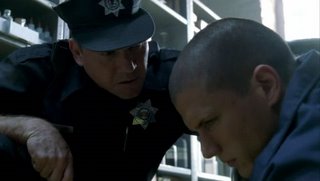Genre 
Genre Studies:
http://en.wikipedia.org/wiki/Genre_studies
When studying a genre in this way, one examines the structural elements that combine in the telling of a story and find patterns in collections of stories. When these elements (or codes) begin to carry inherent information, a genre is emerging.
It has been suggested that genres resonate with people because of the familiarity, the short-hand communication, as well as the tendency of genres to shift with public mores and to reflect the zeitgeist.
Cinematic Genre:
http://en.wikipedia.org/wiki/Film_genre
A "genre" generally refers to films that share similarities in the narrative elements from which they are constructed.
John Truby, Hollywood story consultant states that "...you have to know how to transcend the forms [genres] so you can give the audience a sense of originality and surprise."[1] Some screenwriters use genre as a means of determining what kind of plot or content to put into a screenplay. They may study films of specific genres to find examples. This is a way that some screenwriters are able to copy elements of successful movies and pass them off in a new screenplay. It is likely that such screenplays fall short in originality. As Truby says, "Writers know enough to write a genre script but they haven’t twisted the story beats of that genre in such a way that it gives an original face to it."[

Genre Studies:
http://en.wikipedia.org/wiki/Genre_studies
When studying a genre in this way, one examines the structural elements that combine in the telling of a story and find patterns in collections of stories. When these elements (or codes) begin to carry inherent information, a genre is emerging.
It has been suggested that genres resonate with people because of the familiarity, the short-hand communication, as well as the tendency of genres to shift with public mores and to reflect the zeitgeist.
Cinematic Genre:
http://en.wikipedia.org/wiki/Film_genre
A "genre" generally refers to films that share similarities in the narrative elements from which they are constructed.
John Truby, Hollywood story consultant states that "...you have to know how to transcend the forms [genres] so you can give the audience a sense of originality and surprise."[1] Some screenwriters use genre as a means of determining what kind of plot or content to put into a screenplay. They may study films of specific genres to find examples. This is a way that some screenwriters are able to copy elements of successful movies and pass them off in a new screenplay. It is likely that such screenplays fall short in originality. As Truby says, "Writers know enough to write a genre script but they haven’t twisted the story beats of that genre in such a way that it gives an original face to it."[

0 Comments:
Post a Comment
<< Home